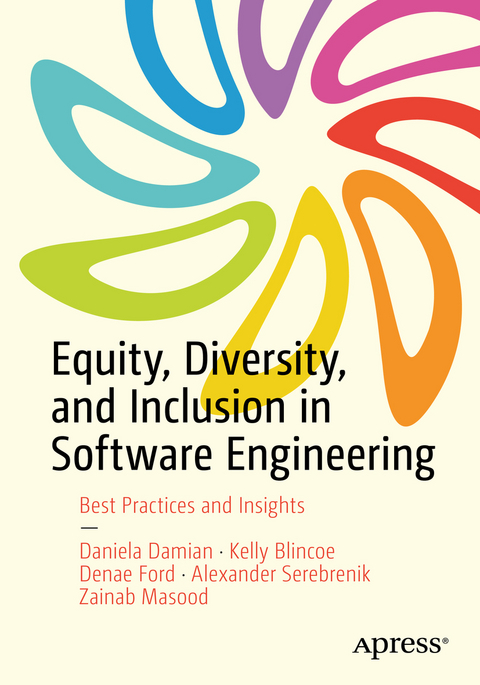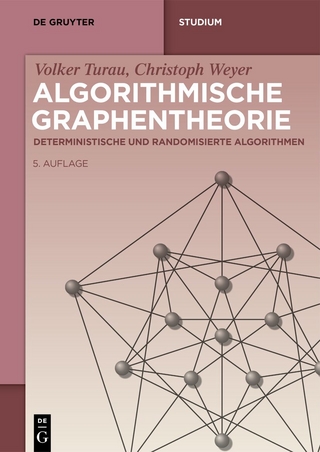
Equity, diversity, and inclusion in software engineering
Apress (Verlag)
978-1-4842-9650-9 (ISBN)
Creating an inclusive environment where different software developers can feel welcome and leverage their talents is an ethical imperative no company can ignore. Indeed, software organizations have in the last decade been trying to make changes for a more diverse and inclusive software development environment. The push for increased diversity in software has been a public one, from annual diversity reports by some of the worlds' most visible companies such as Microsoft, Google, and Facebook, to large projects such as Linux Foundation's Software Developer Diversity and Inclusion project that explores, evaluates, and promotes best practices from research and industry to increase diversity and inclusion in software engineering.
Despite these many efforts, diversity remains low. Numbers from the software industry show that less than 25% of software engineers are women. Diversity is also low in regards to many other facets of diversity.
This book provides an overview of research into the different aspects of diversity and inclusion in software engineering, as well as the tools, methods, and practices proposed to foster diversity and to build inclusive software teams and development environments. It describes research challenges in studying diversity and inclusion in software.
Readers will be challenged to consider how they are contributing to a lack of inclusion and what they can do to improve inclusion in the software industry.
What You Will Learn
- Aspects of diversity (e.g., age, culture, gender, race) and relationship to software engineering activities and outcomes
- How to measure diversity
- Investigations of intersectionality in software engineering
- Research methods for the study of diversity and inclusion in software engineering
- Empirical studies of effective practices to foster diversity and inclusion in software engineering
- Interventions and programs that have been used to successfully support retention in software engineering
- Software engineering education for diverse and inclusive software engineering, and proven teaching methods/environments that support diverse and inclusive software engineering
Who This Book Is For
For Researchers, the book presents a state-of-the-art collection of existing studies into many aspects of diversity, methods, and tools proposed and tried out in practice, challenges in research, and contributing to a research agenda on this topic for future studies.
For Industry practitioners, the book describes efforts to investigate diversity in software teams, whether in corporate or open source environments. It also describes empirical evidence about effectiveness of certain methods and approaches to foster diversity and inclusion in software development.
For Educators, the book describes practices and effective changes in Computer Science/Software Engineering curricula that were found as effective in engaging learners from minoritized groups, creating inclusive software teams that are diverse, and which relate to educational material useful for training for diversity, equity, and inclusion.Daniela Damian is a Professor of Software Engineering at the University of Victoria, BC, Canada. Her teaching approach is experiential-based and in close connection with the software practice. Her SE research informs and is blended into my teaching practices. Her goal is to create a learning environment that prepares students for future real-world software engineering that takes place in collaborative international and multi-cultural teams. Dr. Kelly Blincoe is a Senior Lecturer of Software Engineering at the University of Auckland, New Zealand in the Department of Electrical, Computer, and Software Engineering. She leads the Human Aspects of Software Engineering Lab (HASEL). Her research is mainly in the human and social aspects of software engineering. Current research topics include: software dependencies, software ecosystems, collaborative software development, software requirements engineering, and software developer diversity and inclusion. Her research is currently funded by the Royal Society Te Apārangi's Marsden Fund, the National Science Challenges Science for Technological Innovation's Veracity Spearhead, and Google. Dr. Denae Ford Robinson is a Senior Researcher at Microsoft Research in the SAINTes group and an Affiliate Assistant Professor in the Human Centered Design and Engineering Department at the University of Washington. Her research lies at the intersection of Human-Computer Interaction and Software Engineering. In her work she identifies and dismantles cognitive and social barriers by designing mechanisms to support software developer participation in online socio-technical ecosystems. She is best known for her research on just-in-time mentorship as a mode to empower welcoming engagement in collaborative Q&A for online programming communities including open-source software and work to empower marginalized software developers in online communities. Alexander Serebrenik is a Professor of Software Evolution at Eindhoven University of Technology (TU/e), The Netherlands. His areas of expertise include both technical and social aspects of software evolution and maintainability, as well as program analysis and transformation. He has been closely involved in a series of industrial projects pertaining to software maintainability assessment, and serves as Steering Committee member of the IEEE International Conference on Software Maintenance. Zainab Masood is working as a Postdoctoral Research Fellow in the Software Engineering Global interAction Lab (SEGAL) in the Department of Computer Science at the University of Victoria, Canada. Before that she was working as a Professional Teaching Fellow at the University of Auckland. She also worked as a Research Assistant in the Human Aspects of Software Engineering Lab (HASEL) and Software Engineering Processes, Tools, and Applications (SEPTA) research lab at the University of Auckland. Prior to that, she was working as a Software Tester and Quality Expert in the software industry for more than nine years.
lt;p>Chapter 1: Foundations
Terminology.
Theoretical framing of diversity.
Intersectionality
Measuring/assessing diversity
How to ask about gender/age/ experience?
Quantitative
Chapter 2: Measures of Diversity
Personal data and GDPR/privacy regulations
How diverse are software engineering communities?
Current state of software engineering
Impact of diversity
Cost of diversity
Retrospective: Why are communities not diverse enough?
Chapter 3: Interventions-What can be done to increase diversity?
Empirical studies
Best practices from academia/industry
Chapter 4: Diversity Everywhere
Reflections and lessons learned from inclusion initiatives in other domains
Reflections on aspects of diversity that are understudied in software engineering
Chapter 5: Recommendations for the Future
| Erscheinungsdatum | 09.04.2024 |
|---|---|
| Zusatzinfo | Illustrationen |
| Verlagsort | Berkeley |
| Sprache | englisch |
| Maße | 178 x 254 mm |
| Einbandart | kartoniert |
| Themenwelt | Mathematik / Informatik ► Informatik ► Software Entwicklung |
| Mathematik / Informatik ► Mathematik ► Finanz- / Wirtschaftsmathematik | |
| Sozialwissenschaften ► Soziologie | |
| Wirtschaft ► Betriebswirtschaft / Management ► Personalwesen | |
| Schlagworte | dei • Diversity • diversity in tech • Diversity tools • Equity • Inclusion • Intersectionality • Representation • Software engineering • software teams |
| ISBN-10 | 1-4842-9650-8 / 1484296508 |
| ISBN-13 | 978-1-4842-9650-9 / 9781484296509 |
| Zustand | Neuware |
| Informationen gemäß Produktsicherheitsverordnung (GPSR) | |
| Haben Sie eine Frage zum Produkt? |
aus dem Bereich


